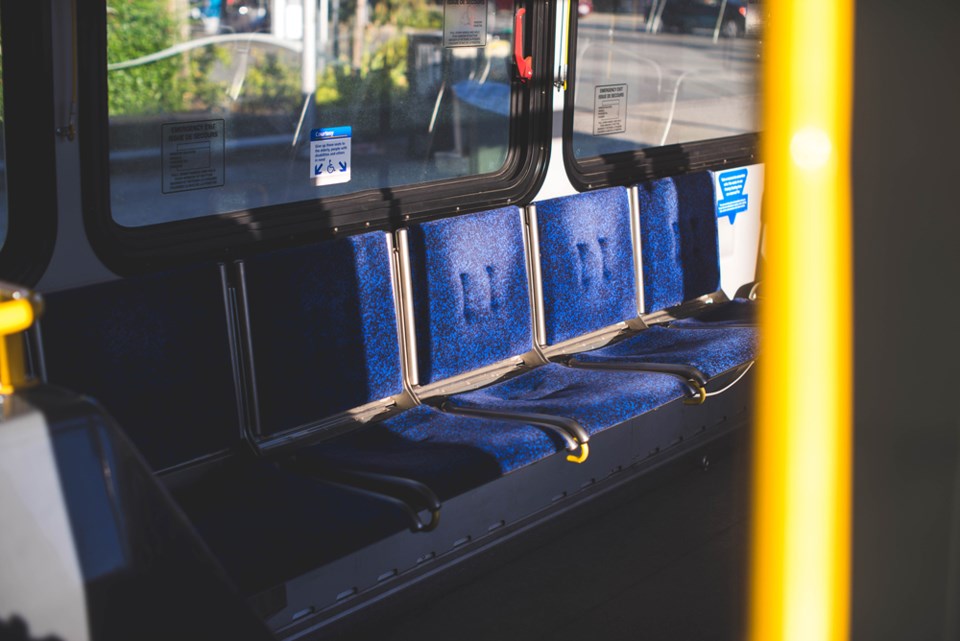COVID-19 caused revenue shortfalls in Squamish’s transit system, but subsidies from senior levels of government and BC Transit have helped balance the books.
“If you can think of it from a larger budget perspective, you remained on budget even in the wake of fairly significant revenue losses, as a result of the lease fee holiday and some changes to Route 5, which has allowed you to take these safe restart dollars and allocate those into your local transit fund for use in future years,” said Rob Ringma, a senior manager of government relations with BC Transit.
It was one of the main takeaways on Jan. 12, when BC Transit staff presented council with the annual operating agreement for the past year of 2020 to 2021.
Normally, this would’ve been presented at a much earlier date — around May or June — but with COVID-19 upending regular operations, this was delayed significantly.
Council voted unanimously in favour of approving the annual operating agreement, and also directed the municipality’s top bureaucrat to sign a three-year transit expansion initiatives letter with BC Transit.
These approvals are fairly routine. Annual operating agreements and expansion initiatives letters are signed every year.
But what is not routine is the level of disruption that COVID-19 has created.
As part of the BC Transit presentation, there was a summary of the effects the pandemic had on local transit.
For the regular transit service, Ringma estimated there was a revenue shortfall of about $152,000 in the past year due to COVID-19.
Many people stopped taking the bus, especially during the earlier days of the pandemic, he said.
However, there were some ways BC Transit and other authorities helped shoulder that burden.
Ringma noted that BC Transit enacted a vehicle lease fee holiday, which cut down on costs by about $131,000.
The Route 5 South Parks bus was also cancelled, helping save more money.
Finally, funding from the provincial and federal governments kicked in $342,000.
Combining that cash injection with money already in the municipality’s local transit fund boosted the District’s transit reserves to $547,000.
This fund is held by BC Transit, but the municipality has full control over what kind of transit-related expenses it can cover.
A similar picture emerged for handyDART services.
In this case, revenue dropped by $7,100 due to ridership decreases.
At the same time, a lease holiday from BC Transit reduced vehicle costs by $17,900.
Safe restart funding provided by the federal government and the province kicked in $18,800, which has boosted the municipality’s local transit fund for handyDART to $18,800.
With respect to both the regular and handyDART systems combined, government breaks have helped balance the books despite the challenges brought on by the pandemic.
“The lease fee holiday reductions covered all but approximately $9,000 of the budgeted lost revenue that had been incurred,” said Ringma.
“And the savings that were obtained by not implementing the Route 5 made up basically the remaining gap, which really put the District’s share of transit costs for the region on budget for the year.”
While the pandemic hasn’t hurt the local transit system’s pocketbooks as badly as it could have, it has resulted in delays for projects.
Ringma said that planned expansions for the Squamish transit system were deferred until the 2021 to 2022 fiscal year.
This upcoming year, BC Transit is aiming to evaluate Route 9 - Quest University, fill in service gaps for Route 5 - South Parks and expand handyDART service hours.
Council expressed concern that expanding Route 9 would be a poor choice, given that Quest may not have in-person classes this year.
However, senior transit planner Bronson Bullivant said that boardings for Route 9 are at about 124 a day as of the last couple of weeks.
Last year around this time before the pandemic it was 175.
Bullivant said it showed that while the route goes to the university, it also serves the town’s core transit network, as it connects the Quest University area to downtown.




